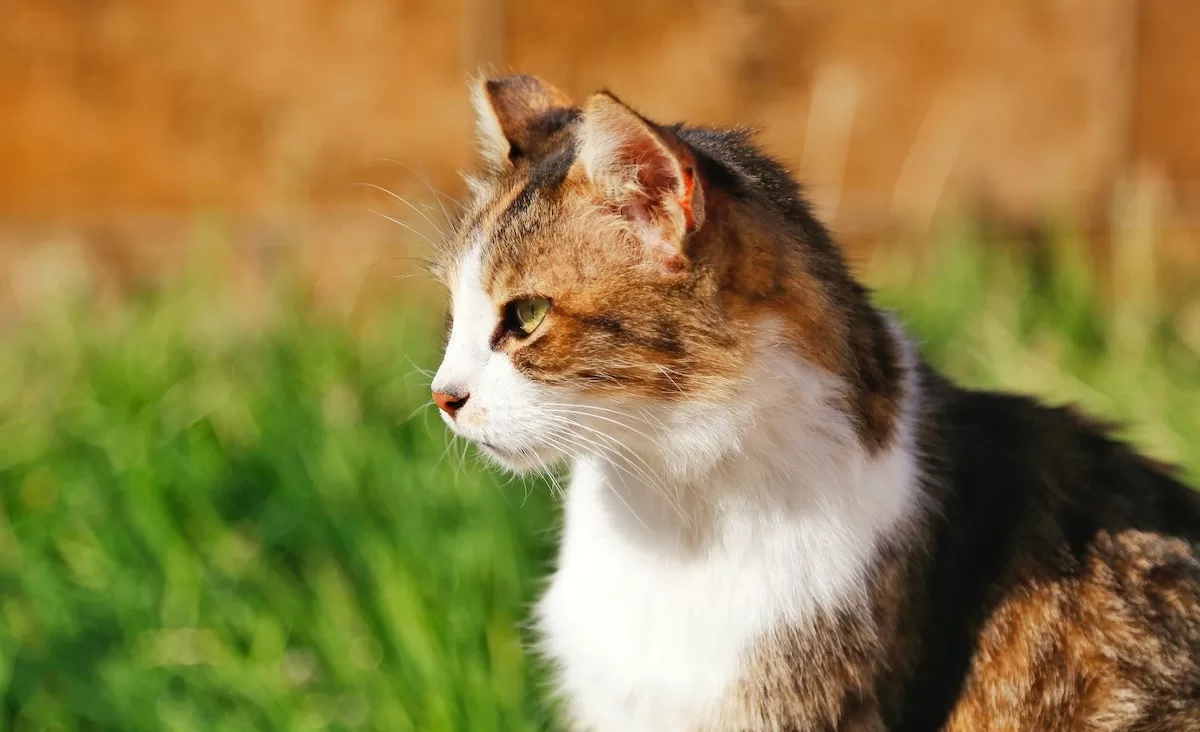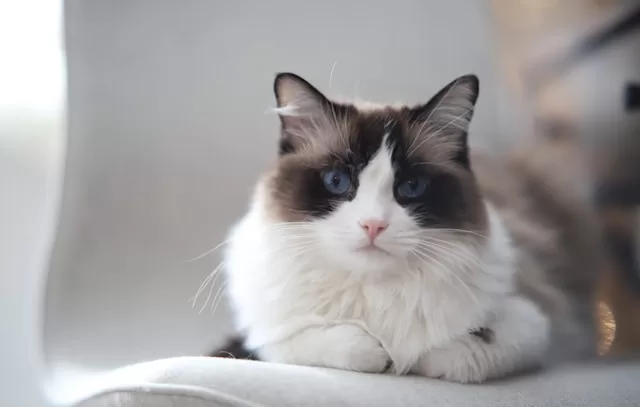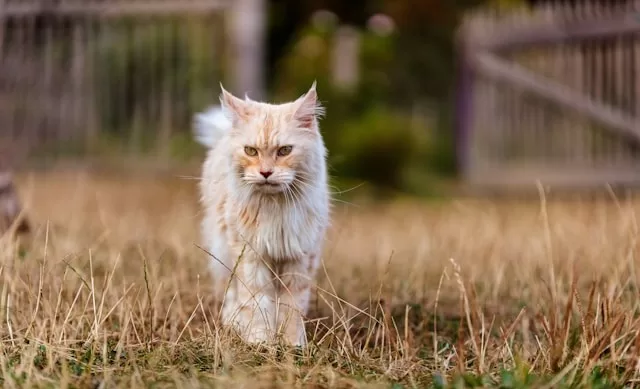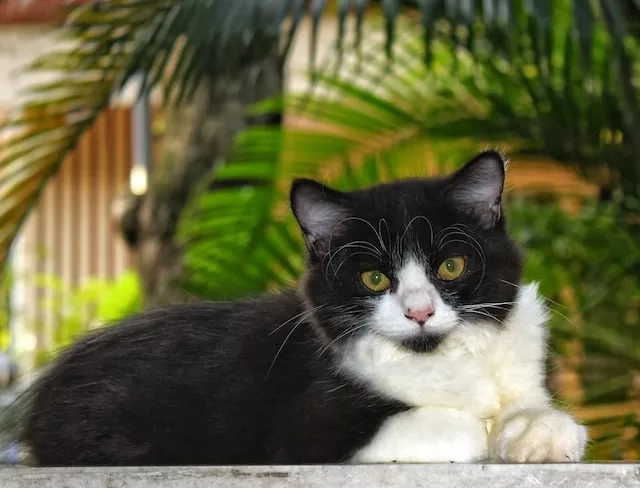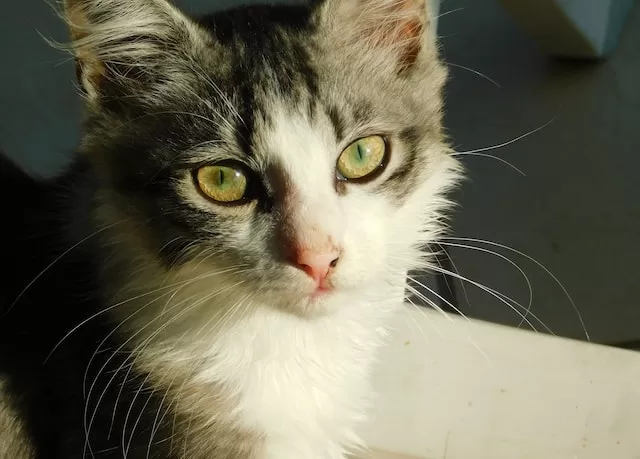If you’ve ever owned a cat, you’ve probably witnessed your furry friend indulging in one of their most distinctive behaviors: scratching. While it may sometimes lead to scratched furniture or frustration, scratching is an essential aspect of a cat’s nature.
In this, we’ll explore the reasons why cats scratch, the benefits it brings to them, and how to manage this behavior to maintain harmony in your home.
Instinctual Behavior
Scratching is an instinctual behavior in cats that dates back to their wild ancestors. In the wild, cats would scratch trees and other surfaces to mark their territory, sharpen their claws, and stretch their muscles. These instincts are still deeply embedded in our domesticated cats, even if they live indoors.
Territory Marking
Cats have scent glands in their paws, and when they scratch, they leave behind their unique scent. This marking is a way for cats to establish their territory and communicate with other felines in the area. So when your cat scratches your furniture or the carpet, they’re essentially telling other cats, “This is my space!”
Claw Maintenance
Cats’ claws grow continuously, and scratching helps keep them in excellent condition. By scratching, cats remove the outer sheath of their claws, revealing the sharp, new claws underneath. This process is essential for maintaining healthy claws, enabling them to climb, hunt, and defend themselves effectively.
Stretching and Exercise
Scratching is also a form of stretching and exercise for cats. When they scratch, they engage various muscles, promoting flexibility and overall physical well-being. This activity is especially important for indoor cats that may not have the same opportunities for exercise as their outdoor counterparts.
-
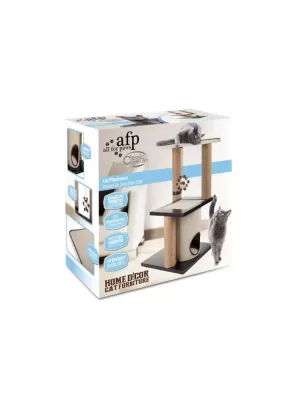 ALL FOR PAWS TWO LEVEL CLIMB AND PLAY SCRATCHER L40 x W40 x H72 cmAED 330.00
ALL FOR PAWS TWO LEVEL CLIMB AND PLAY SCRATCHER L40 x W40 x H72 cmAED 330.00 -
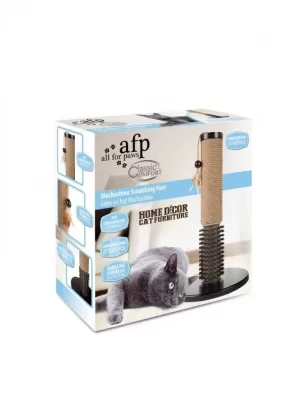 ALL FOR PAWS MOCHACHINO SCRATCHING POST WITH RUBBER BRISTLES L35 x W35 x H55 cmAED 150.00
ALL FOR PAWS MOCHACHINO SCRATCHING POST WITH RUBBER BRISTLES L35 x W35 x H55 cmAED 150.00 -
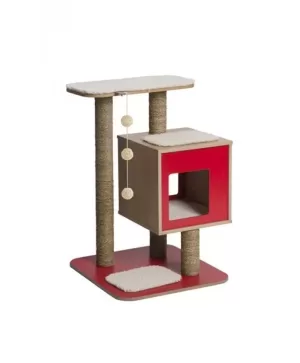 PREMIUM CAT FURNITURE V- BASE – RED 55 x 56 x 81 cmAED 499.00
PREMIUM CAT FURNITURE V- BASE – RED 55 x 56 x 81 cmAED 499.00 -
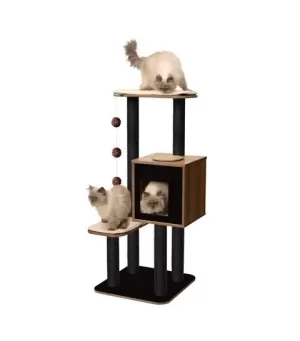 PREMIUM CAT FURNITURE V-HIGH BASE – BLACK 56 x 56 x 121 cmAED 599.00
PREMIUM CAT FURNITURE V-HIGH BASE – BLACK 56 x 56 x 121 cmAED 599.00 -
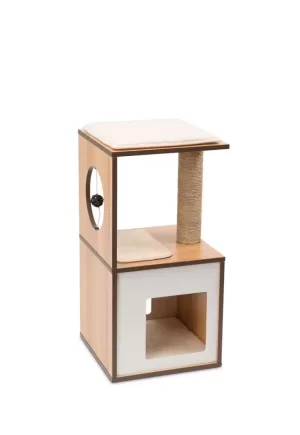 PREMIUM CAT FURNITURE V-BOX SMALL – WALNUT 37 x 37 x 72.5 cmAED 300.00
PREMIUM CAT FURNITURE V-BOX SMALL – WALNUT 37 x 37 x 72.5 cmAED 300.00 -
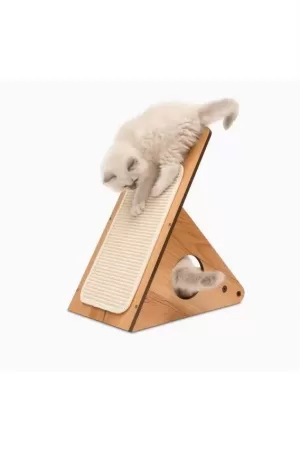 PREMIUM CAT FURNITURE V-PLAY CENTER – WALLNUT 52x11x28 cmAED 149.00
PREMIUM CAT FURNITURE V-PLAY CENTER – WALLNUT 52x11x28 cmAED 149.00
Stress Relief and Relaxation
Have you noticed your cat scratch more when they seem agitated or anxious? Scratching helps cats relieve stress and relax. It’s a way for them to release pent-up energy and alleviate anxiety, making them feel more secure and content.
Managing Scratching Behavior
While scratching is natural for cats, we understand that it can be challenging to deal with when furniture becomes their target. Here are some tips to manage your cat’s scratching behavior:
- Provide Scratching Posts: Offer your cat plenty of scratching posts made of different materials, such as sisal, cardboard or carpet. This will redirect their scratching behavior away from furniture and onto appropriate surfaces.
- Positive Reinforcement: When your cat uses their scratching post, offer praise, treats, or a gentle pat to encourage the behavior.
- Trim Claws Regularly: Regularly trimming your cat’s claws can reduce the damage caused by scratching while still allowing them to maintain healthy claws.
- Use Deterrents: If your cat persists in scratching furniture, consider using double-sided tape, aluminum foil or cat-safe sprays with scents they dislike on the surfaces they target.
- Be Patient: Changing a cat’s behavior takes time and patience. Avoid punishing your cat for scratching and instead focus on positive reinforcement for appropriate scratching habits.
Overall
Understanding why cats scratch is key to living harmoniously with our feline companions. Scratching is a natural behavior that serves various purposes, including territory marking, claw maintenance, exercise and stress relief. By providing appropriate scratching posts and understanding their needs, we can help our cats engage in this instinctual behavior while safeguarding our furniture and home.
Remember, a happy cat is a well-scratched cat!

